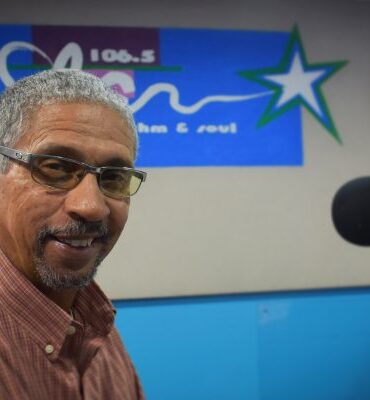Listeners:
Top listeners:
-
play_arrow
Star 106.5 FM Star 106 Hits
-
 play_arrow
play_arrow
Flower Power Festival Podcast Robot Heart
-
 play_arrow
play_arrow
Tech House Podcast Robot Heart
-
 play_arrow
play_arrow
Winter Festival Podcast Robot Heart
-
play_arrow
Summer Festival Podcast Robot Heart
Does Affluence Make It Harder To Recover?: Family Addiction Specialist: Addiction Counselor
Wealthy individuals have a unique set of challenges when it comes to mental health and addiction. Emotional and behavioral issues can linger much longer for wealthy individuals before one is willing to receive psychological help for a variety of reasons. High-net-worth individuals also are faced with a variety of barriers that prevent them receiving professional help even when they are ready, and once one does begin the recovery process for mental health or addiction related issues they may be faced with another set of complexities within the therapeutic space itself.
Let’s begin with some of the reasons behind why professional help for wealthy individuals is often delayed when it comes to treating mental health and addiction related issues, much more so than individuals from other socioeconomic backgrounds. There are four primary reasons behind this:
To complicate matters, high-net-worth individuals are also faced with barriers that may prevent them from entering treatment. Another word for barriers is excuses. Two primary concerns faced by high-net-worth individuals are frequently privacy and perception. When it comes to privacy, wealthy individuals are concerned of being exposed. In other words, they are afraid it will become known that they have a mental health or addiction related issue, that they were unable or too “weak willed” to get well on their own, and that their problem was so unmanageable that they had to receive help from a psychotherapist or other mental health or addiction specialist. Even if they are not a public figure, they may be afraid of friends or colleagues finding out about their problem. If they are an executive level individual in their company or have a prominent career, they may have fears of tarnishing their reputation and being forced out of their job. For example, they may be afraid of being seen walking in or out of their therapist’s office. Or they may be fearful of a breach of confidentiality. While mental health professionals and treatment centers are all held to the same ethical standards of confidentiality, the unfortunate truth is that confidentiality is all too often broken by other clients who may see a prominent figure in treatment with them or may be seeing the same therapist as them.
Another great challenge faced by wealthy individuals when it comes to entering treatment is how they feel they will be perceived. More specifically, wealthy individuals often carry great shame about their mental health or addiction related issues. While it is true that shame transcends individuals across various cultural backgrounds and socioeconomic statuses, wealthy individuals hold onto a specific set of shameful notions. It often sounds something like, “I have all this success and all this wealth, I have no reason to feel depressed, no reason to be addicted to alcohol.” In other words, they inwardly castigate themselves about their mental health or addiction because of their great financial status and/or life successes. They may also feel they disgraced their family legacy. This type of self-talk often serves to compound and heighten their sense of shame, because they think they shouldn’t have these problems with all the success they have and all of the money they have, none of which is solving their problems. Unfortunately, mental health and addiction related issues are a problem that money can’t solve.
Lastly, wealthy individuals also face a unique challenge within the treatment setting – trust. Prominent and wealthy individuals often have a history of keeping secrets and not trusting others. We already live in a world which instills in us the importance of keeping secrets within a family and not trusting individuals outside of the family, and this is something commonly seen across people of different backgrounds. These notions are often heightened and exacerbated among affluent families. Wealthy individuals often struggle to build healthy stable relationships that are built on things like trust, respect and love. They may lack trust of outsiders and be suspicious of people’s motives. It can sometimes be challenging to build a healthy therapeutic relationship with individuals who have these types of beliefs instilled in them. This is important because studies reflect that the rapport between client and therapist is one of the most important criteria that will determine a successful outcome in therapy, and if a client is not trusting of their therapist it diminishes the efficacy of treatment, for obvious reasons. They may also have a false preconceived notion that nobody will understand them and that there is no help available for them.
In order to ensure the highest levels of confidentiality there has been a shift in mental health and addiction recovery towards more exclusive treatment options for high-net-worth individuals and high-profile clients who require the highest level of privacy and discretion. For example, services such as ones provided by Family Addiction Specialist in NYC offer exclusive services when retained to work with a select individual or family. Addiction treatment has evolved from stand-alone talk therapy to more on-hands approaches such as Recovery Coaching (also known as Sober Coaching) or Recovery Companions (also known as Sober Companions). In order to ensure the highest levels of discretion, Family Addiction Specialist utilizes a private undisclosed office location to meet clients, or concierge therapy or recovery coaching is offered directly to the client’s home, hotel room, or other location. Even billing is done with great care under an alternate business name. It is important that individuals who are highly concerned about their privacy know that such treatment options exist. A benefit of going to a treatment provider that caters to high-net-worth and ultra-high-net-worth individuals is that these firms have culturally competent teams that have an intimate understanding of the unique challenges faced by this population. They will have a better understanding of family dynamics, financial matters, values, lifestyle, mindset surrounding stigma and shame, and other such important considerations of the treatment process.
For more information on NYC addiction treatment and to find the best addiction counselor, or for general therapy and mental health, or to inquire about Family Addiction Specialist’s private concierge sober coach Manhattan, recovery coach Manhattan, sober companion Manhattan, Manhattan addiction therapy services and/or our Manhattan teletherapy services (online therapy/virtual therapy), as well as our Manhattan hypnosis services in New York City please contact our undisclosed therapy office location in the Upper East Side of NYC today at (929) 220-2912.
This content was originally published here.
Written by: admin
Chart
-
Top popular
Is Trey Songz Dating Yasmine Lopez? Shirtless Mirror Selfie With Model Sparks Romance Rumors
Jada Pinkett Smith and Willow Smith Reveal They Both Considered Surgically Enhancing Their Butts
OCT 14 BIRTHDAYS
Serena Williams Accused of Bleaching Her Skin to Look More White, But Ended Up Looking like Marlon Wayans From “White Chicks” Mixed With Sammy Sosa
MEGAN THEE STALLION: Swimsuit Line Launch
BUILD YOUR RADIO WEBSITE WITH Pro Radio



